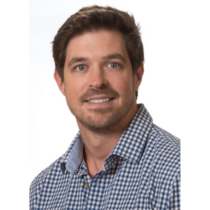Ian Weavind
Nationality: South African
Age: 33
Last job title: Finance manager at Ascot Wealth Management
Previous degree: post-grad in management at University of Cape Town

1. Why did you choose to go back to school for an MBA? And why did you choose RSM?
“I reached a ceiling in my career after eight years of working in finance. I got bored with finance, and wanted to change industry, and move to the field of operations and supply chains. I spoke to several RSM alumni in South Africa, and was sold. Rotterdam is also the place to be if you want to work in supply chain and logistics.”
2. How is the MBA preparing you to do business in a world in motion?
“RSM and Rotterdam have a massive element of sustainability. This is where every company and the world is going: laws are changing and you need an SDG focus. Leaders used to be top down, giving orders. RSM caters for everyone’s needs so people are on the same page and is part of decisions in the workforce. We’re being kept in line with changes in corporate environments. All of this is a bonus now and in the future.”
3. How would you describe your RSM MBA experience so far?
“It’s challenging, eye-opening and fun! The work isn’t difficult but there’s a large quantity of it. The content and curriculum are very practical. We’re doing a lot of simulations. For example, in the operations course, we played distributors and suppliers and had to communicate with each other. And for marketing we had to make up a product and market it. It’s all so hands-on, and we’re learning so much in one year. It’s also exhilarating to meet people from countries like Peru, India and the Philippines who I would’ve never met otherwise.”
4. What has been the most challenging assignment or course during the MBA?
“Quantitative platform for business – in other words: business statistics – is a tough topic with weekly tests. If you’re not following what’s going on, it’s like a domino effect. You have to keep up with modules not to fall behind.”
5. In what way has the Personal Leadership Development programme (PLD) affected you?
“It’s great because you reflect on who you are and what you want to become. One assignment was to write a present letter to yourself, imagining you’ll read it again in 1 year, about growing strengths. This mindset prepares you for the future and what you want to get out of this year. I also put in place a few habits to benefit myself for this programme, for example to get up an hour up earlier and exercise more – all strengths I need to be a better leader.”
6. How are you planning to contribute to the Sustainable Development Goals through business – now and in the future?
“Any element of supply chain can be adapted in a more sustainable way: we can maximise the utilities of a ship so it doesn’t leave half-empty, and we can recycle more. We need to minimise waste and oil spills so we stop destroying millions of animals. We can avoid this with a better quality control process to save life below water (SDG14).”
7. How have you utilised the alumni network so far?
“We’re still early in the programme, but found a mentor though the RSM and RSM MBA groups on LinkedIn. I found an alumnus from 2015 and will draw into his experience to prepare for the supply chain field. I plan to get more out of this network the rest of this year too.”
8. How has the career development team helped you on your journey?
“The workshops on self-marketing by Nicolas Constantinesco have been mind-blowing. My LinkedIn wasn’t up to date, and he made me realise how bad I was interviewing in the past. Turning experiences and goals into a story makes you stand out like a leopard amongst sheep. The career sessions help us overcome fears when networking, and help you channel which way you want to go.”
9. What advice could you give to people who are considering doing an MBA?
“I’m lucky that I have an idea of what I want to do in operations, but it’s easy to get caught up in the work and all the other activities. Time goes by fast. Find your interest, and focus on that. You don’t want to find yourself later in the year and still have no idea. It will make your year a lot easier. Also, don’t be shy to reach out for help, for example with course content. All professors respond quickly, and most have an open door policy. People at RSM are here to help you.”
10. What does the future hold for you?
“RSM has reinforced my choice to leave finance and move to supply chain and operations. I’m ready for change. Thanks to the Dutch visa policy, I have the opportunity to find a job here after the MBA. I’d be stupid to leave if I want to work in supply chain, for example at Heineken, Grolsch or Maersk. Yes, I’d like to see myself work in one of the big companies or in one of the ports.”